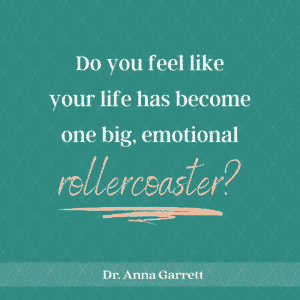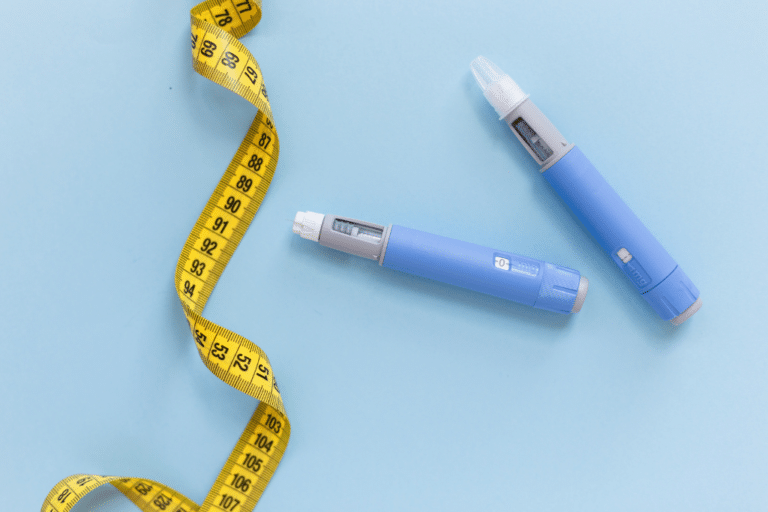What happens to your brain during perimenopause?
Laura, 45, always considered herself “a happy-go-lucky kinda gal”. She managed to be pretty laid back through many tough seasons of her life. The latest season included raising two teenage daughters and maintaining a 20-year-old marriage to her college sweetheart.
Last week, she went out to lunch with one of her closest friends. In the middle of lunch, she broke down and lost it. Like, full-on tears, ugly crying, lost it. Her friend was bewildered. Laura didn’t pull this kind of drama-something was wrong….
 Laura admitted to feeling like she was bipolar. Her family had a history of this disease, so her concern was legitimate. She expressed feelings of mood swings, depression, and anxiety – her life was one big emotional roller coaster. She wanted a divorce. Her girls were driving her crazy. The list could go on and on…
Laura admitted to feeling like she was bipolar. Her family had a history of this disease, so her concern was legitimate. She expressed feelings of mood swings, depression, and anxiety – her life was one big emotional roller coaster. She wanted a divorce. Her girls were driving her crazy. The list could go on and on…
Ever feel like Laura? Keep reading to find out what happens to your brain during perimenopause.
What’s happening to my brain?
Since you read my blog, you should be familiar with the fact that hormones are responsible for A LOT when it comes to your physical and emotional health. But let’s quickly review for those who are new readers.
As you approach menopause (and are perimenopausal) your levels of the hormones progesterone and estrogen start to decline. There are receptors all over your body for these hormones. Many of us are familiar with the reproductive system receptors, but you may not know that they are dispersed throughout your body, including your brain! So, you know what happens to our uterus/ovaries with declining hormone levels, but you may not realize the havoc it can wreak on your brain.
So, what IS happening in your brain during this transition time? Estrogen is related to the production of something called a neurotransmitter. Neurotransmitters are chemicals in your brain that regulate your moods. Three of the leading players are serotonin, norepinephrine, and dopamine. All three of these neurotransmitters work together to achieve your overall health and well-being.
Serotonin
- Is an inhibitory neurotransmitter, which means it blocks excessive stimulating neurotransmitter messages. Low levels of serotonin can cause irritability, anxiousness, depression, and insomnia.
Dopamine
- Is associated with the pleasure and reward areas of your brain. It is both excitatory and inhibitory depending on the situation. If your dopamine levels are low, you may lack motivation, have trouble concentrating, and exhibit “seeking” behaviors like drinking, drugs, shopping, or gambling to get that pleasure. Or you may not feel pleasure from previously enjoyable experiences.
Norepinephrine
- Produces alertness, focus, and motivation. Low levels of this neurotransmitter are associated with memory problems, sleeping issues, and low energy.
During perimenopause, the fluctuating levels of progesterone and estrogen disrupt levels of neurotransmitters. Mood disorders are common during this time, especially if you have a history of depression and anxiety.
What can I do about these changes?
Neurotransmitter changes in the body may seem confusing, but control of them doesn’t have to be. There are a variety of different foods that can impact your neurotransmitter levels.
You can’t get serotonin directly from your diet. Instead, look for sources of tryptophan, an amino acid that is converted to serotonin in your brain. Sources of tryptophan are chicken, turkey, eggs, organic dairy, fish, peanuts, pumpkin seeds, spinach, and asparagus. As a side note, about 95% of the serotonin your body needs to function is produced inside your gastrointestinal tract. Therefore, it is essential to have a healthy functioning gut before you began supplementation.
Dopamine and norepinephrine levels can be increased by supplementing with tyrosine, an amino acid that is the building block of both neurotransmitters. Look for seeds, nuts, beans, lentils, grass-fed meats, egg whites, turkey, chicken, shrimp, and non-GMO soy.
It is also important to remember food is only one piece of the puzzle. Self-care, including managing stress levels, is essential to optimize your neurotransmitter levels. There are also supplements that can help. These will be covered in a separate post.
Dr. Anna Garrett is a menopause expert and Doctor of Pharmacy. She helps women who are struggling with symptoms of perimenopause and menopause find natural hormone balancing solutions so they can rock their mojo through midlife and beyond. Dr. Anna is the author of Perimenopause: The Savvy Sister’s Guide to Hormone Harmony. Order your copy at www.perimenopausebook.com.
Dr. Anna is available for 1-1 consultation. Find out more at www.drannagarrett.com/lets-talk




